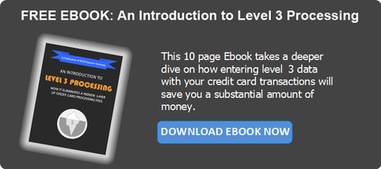When opening a new merchant account, there are several processing fees that a merchant should be aware of so they can be better prepared to negotiate a fair price and not be bogged down with unnecessary fees. Before a merchant talks to a Merchant Service Provider (MSP) they should have a good idea of how they will be taking cards and what type of cards they will be taking. negotiate-better-rate
For example, will be majority of credit card processing take place over the phone or in person?  Will the business be taking mostly consumer credit and debit cards or will the majority be corporate and government cards? Knowing these facts ahead of time will save a lot of headaches down the road.
Will the business be taking mostly consumer credit and debit cards or will the majority be corporate and government cards? Knowing these facts ahead of time will save a lot of headaches down the road.
Tiered Vs. Interchange Plus Processing
This is the first set of fees a merchant will run into and it is vitally important to determine which structure works better for your business because it will lay out the groundwork for the rest of the fees a merchant will see on their statements.
A tiered structure typically has three categories a credit card can fall into, a ‘qualified’, ‘mid-qualified’, and ‘non-qualified’ rate. Most debit cards and regular credit cards under the tiered structure will fall under the ‘qualified’ rate and have a relatively low processing fee. However, under this structure corporate and government credit cards will be ‘non-qualified’ and thus have a much higher processing fee.
If your business is B2B and will be taking mostly corporate and government cards, Interchange Plus will almost always be the better option. Interchange is the ‘true cost’ of the card, or in other words what the major credit card companies charge the Merchant Service Provider. The Merchant Service Provider will then put a markup on Interchange, hence the Plus, and that will be your cost to process. The advantage is the MSP markup for corporate and government cards is usually a lot less under this system then it would be in the tiered structure.
Monthly Minimum
Most businesses conducting B2B transactions will have a monthly minimum which is usually around $25-30. Savvy MSP salesmen will try to make it seem like a business only has to process $25-$30 in order to avoid this monthly minimum. This is false, a monthly minimum means a business has to acquire $25-$30 worth of processing fees, not sales, or else they will be charged the difference.
This means that if a business is being charged an average of 2% per transaction, they would have to sell $1500 worth of their product/services in order to hit a $30 monthly minimum. It is advised for new businesses to include the monthly minimum in their operating budget, especially if it is uncertain how much income will be generated in the early stages. Fortunately, the monthly minimum is usually easy to negotiate and can be brought down to a more manageable number.
Swiping vs. Keying
While it seems like a no brainer, determining how your business will be processing the majority of their credit cards is of the upmost importance. If a business is set up as a ‘swiped’ account, meaning the majority of cards will be processed in person, then processing transactions without the card present will result in a much higher rate.
Most businesses conducting B2B transactions will not be processing the card it person, so be sure to be set up as a ‘keyed’ account. Although most ‘keyed’ accounts have a higher processing percentage, it pales in comparison to the rates a business would be charged by keying transactions after being set up as a swiped account.

